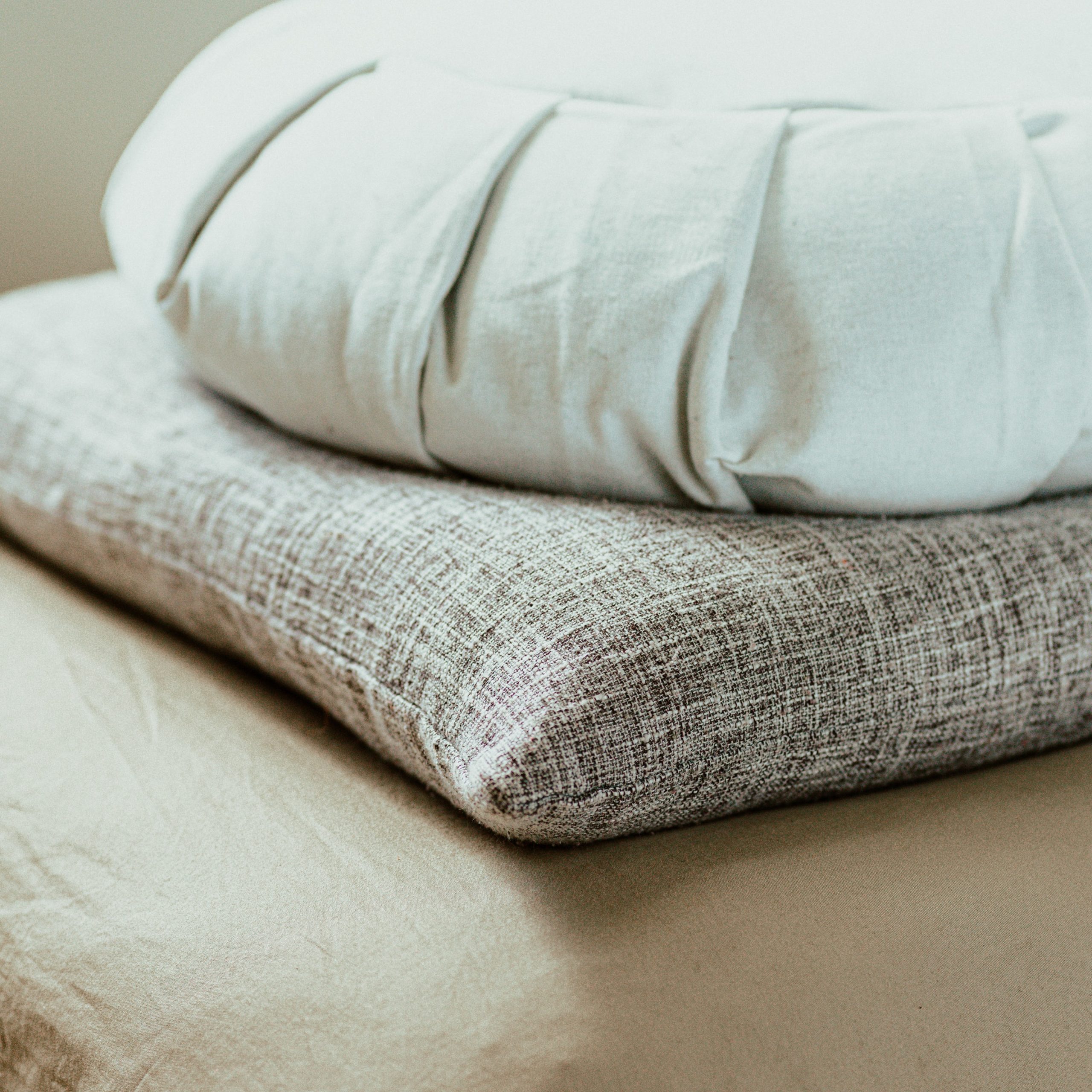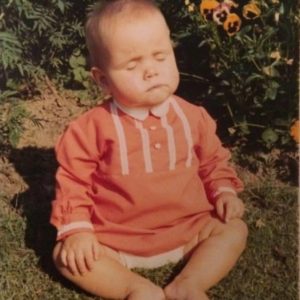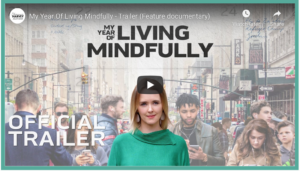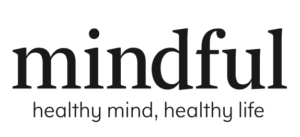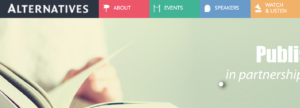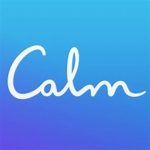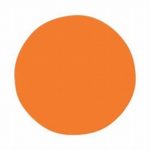What is mindfulness?
The most widely used definition comes from Jon Kabat-Zinn, the microbiologist-turned meditation teacher who designed Mindfulness Based Stress Reduction (MBSR), the eight-week mindfulness course, which is favoured by scientists who are interested in studying the effects of meditation.
Kabat-Zinn has defined mindfulness meditation as “the awareness that arises from paying attention, on purpose, in the present moment and non-judgmentally”. By focusing on the breath, the idea is to cultivate attention on the body and mind as it is moment to moment, and so help with pain, both physical and emotional.
“Just so it is clear what I mean when I use the word ‘mindfulness,’ I am using it as a synonym for ‘awareness’ or ‘pure awareness.’
Defining mindfulness is not easy it seems. It’s a bit like defining similarly complex ideas such as ‘intelligence’ and ‘wisdom.’ In line with Kabat-Zinn’s teachings, mindfulness can be regarded as a state of mind, a personality trait, a meditation practice, and a mental health intervention. He intentionally allows for multifaceted complexity so that it can be picked apart and studied in differing combinations such as acceptance, attentiveness, awareness, focus, curiosity, or attitude. (source)
Before you start
My first brush with mindfulness was as a child (though I didn’t know it then).
I mean, look at me!
Buddha personified.
I even got the colour right! 🙂
As young children we still have this innate capacity to live in the moment, be aware of ourselves and our surroundings. Children can sit and stare at a bee on a flower or at clouds in the sky.
At some point we lose this ‘being in the now’, get overtaken by education and life and nobody teaches us any of it in school.
In our busy times, and especially this year, it seems to come as no surprise that more and more people are looking for something to fix their monkey brain, their stress, their overwhelm, quieten the noise.
So where to start? It’s actually pretty easy. You do not have to travel far or spend much money, because the place to start (the only place really) is with yourself.
And that exactly is the challenge! Because we know how hard it is to start something new (or change/improve something), even if we know it will do us good. Remember the last time you wanted to stop smoking? Or start exercising? Eat less sugar? Complain less? Stop yelling at your kids?
Change is hard. Because we are neurologically wired to fight it, to stay in our comfort zone, to reject upheaval and to choose the path of least resistance.
Crap!
However, all change starts with awareness.
So, before you start living mindfully and announcing to the world that you will start meditating (accountability is a great motivator!), I recommend that you watch this movie first.
It will give you a great introduction of what mindfulness is, an overview of how unknown and untested the territory still is but also how huge the results are for those who practice it and that it might not be recommended for everyone.
Then, when you have decided that you will give it a go, know that that is not enough. Trying is not enough. Decide! Get help (coach/accountability)! Join others! Create systems! Like with any new habit, the better you organise it, the more chances you will have of succeeding.
And when you have made that decision, you will find below a lot of resources to help you on your way to a more mindful living.
WEBSITES
Melli O’Brien of MrsMindfulness.com has gathered over 40 of the world’s leading experts on meditation and mindfulness for a series of online interviews, practice sessions and presentations. Now a number of the sessions with some of the worlds most respected teachers are still available for free along with a number of resources to guide you on your journey into mindful living.
- Learn how to practice mindfulness, from the comfort of your own home.
- Hear about the clinically proven benefits from neuroscience and premier researchers.
- Learn powerful strategies to integrate mindfulness into your daily life.
- Discover practical ways to apply mindfulness in specific situations such as at work, in relationships, in parenting and school.
- Learn how mindfulness can transform anxiety, depression & stress.
- Try out various mindfulness practices and find out which you like the best.
- Learn how to ‘respond’ rather than ‘react’ to life’s challenges, living with more wisdom and freedom.
- Learn key insights to deepen your practice and avoid common pitfalls many people make.
World’s No. 1 Positive Psychology Resource. They are a community of practitioners, a knowledge base, a science-based online resource packed full of courses, techniques, tools, and tips to help you put positive psychology into practice every day.
Here are some examples of what you can find here:
MBSR: 25 Mindfulness-Based Stress Reduction Exercises and Courses
They are the makers of the lovely Mindful Magazine to which I am subscribed. Their website is also chockfull of articles and resources about mindfulness, parenting, health etc.
These ones really spoke to me:
7 Mindful Parenting Lessons for the Pandemic
With self-compassion, we give ourselves the same kindness and care we’d give to a good friend. Kristin Neff, Ph.D. is widely recognized as one of the world’s leading experts on self-compassion, being the first one to operationally define and measure the construct over a decade ago. On her site you can read all about what it is and isn’t, test your level of compassion and find guided exercises of self-compassion.
Originally developed by leading experts at Google, Siyli’s interactive programs teach practical mindfulness, emotional intelligence and leadership tools to unlock your full potential at work and in life. I took their Search inside yourself workshop some time ago in Luxembourg. You can attend it yourself in multiples cities and now even online or propose it to be held in and for your company.
Search Inside Yourself takes an evidence-based approach combining neuroscience, attention-training and emotional intelligence. The program provides practical tools that can be applied immediately in life or at work.
The tools, practices, resources and exercises you’ll learn in the Search Inside Yourself program will help to:
- Experience greater overall well-being.
- Build resilience in the face of challenges.
- Manage stress.
- Develop greater self-awareness and emotion regulation.
- Develop empathy and communicate more effectively.
- Increase focus and attention.
If you love podcasts like I do, then jump on over here and find podcasts from spiritual leaders such as: Ram Dass, Jack Kornfield, Sharon Salzberg and more.
I am a fan of Joseph Goldstein’s Insight Hour podcast. Why not tune into his episode on Working with Thoughts, where he explores how much power our thoughts hold over us and shares methods of applying mindfulness to our stream of thoughts and emotions.
Or how about the Jack Kornfield podcast on Love and impermanence where fellow teacher Mark Coleman joins him for an exploration of ways that we can harmonize with impermanence by meeting change with an open heart.
Openground (Australia) works with individuals and organisations to promote the practice of mindfulness as a transformational process.
They offer silent retreats and practices online as well as in Australia and the website contains a lot of information on mindfulness. They also have an app to start off your mindfulness practice.
Alternatives is the UK’s longest running weekly mind body spirit events company and is internationally known as UK’s landmark speaking platform for spiritual teachers, alternative thinkers, conscious business leaders and visionary thought provokers for the past 30+ years.
They organised the Big Magic event with Elizabeth Gilbert that I attended a while ago in London. Their events (a lot of which now also online) area always enlightening.
You have struggled, but you are motivated to make small changes, one step at a time.
Seachange helps you keep those commitments.
Every month, they challenge you to focus on one habit change. You commit to a challenge for a month and get great content every week and get daily support from your own small team and the community
Mindfulness teachers/leaders and their books
Jon Kabat-Zinn – Start your journey with this American professor emeritus of medicine and the creator of the Stress Reduction Clinic and the Center for Mindfulness in Medicine, Health Care, and Society at the University of Massachusetts Medical School.
Here is a good article about his work. I can also highly recommend his books (like Wherever you go there you are and Mindfulness for beginners. )
Mark Nepo – poet and philosopher who has taught in the fields of poetry and spirituality for over thirty years. His books and poems are amazing and my copies so heavily underlined on each page… Highly recommend The Endless Practice: Becoming Who You Were Born to Be and THE BOOK OF AWAKENING: Having the Life You Want by Being Present to the Life You Have.
Eckhart Tolle – spiritual teacher and best-selling author. He is a German-born resident of Canada best known as the author of The Power of Now and A New Earth.
Ram Dass – was a spiritual teacher, psychologist, and author. His best known book, Be Here Now, has been described as “seminal,” and helped popularize Eastern spirituality and yoga with the baby boomer generation in the West.
Sharon Salzberg – central figure in the field of meditation, a world-renowned teacher and NY Times bestselling author.
Jack Kornfield – Author, Buddhist practitioner and one of the key teachers to introduce Buddhist mindfulness practice to the West.
Joseph Goldstein – one of the first American vipassana teachers, co-founder of the Insight Meditation Society (IMS) with Jack Kornfield and Sharon Salzberg, contemporary author of numerous popular books on Buddhism.
Steven Levine – was a poet, author and teacher best known for his work on death and dying.
Leo Babauta – founder of Zenhabits, a site about finding simplicity and mindfulness in the daily chaos of our lives. It’s about clearing the clutter so we can focus on what’s important, create something amazing, find happiness. It has over a million readers.
Mihaly Csikszentmihalyi – his book Flow – The classic work on how to achieve happiness is a classic. He describes in another book how this state of flow is also needed in creativity.
Mathieu Ricard – Buddhist monk, author, translator, and photographer who wrote the book The art of meditation.
Dan Harris – After having a nationally televised panic attack, Harris knew he had to make some changes. He started meditating. His book 10% Happier is a narrative account of Dan’s conversion amid the harried and decidedly non-Zen world of the newsroom and concludes with a section for the beginner on how to get started.
Viktor Frankl – Austrian neurologist and psychiatrist, and a Holocaust survivor. Viktor Frankl was uniquely able to observe the way that he and other inmates coped with the experience of being in Auschwitz. He noticed that it was the men who comforted others and who gave away their last piece of bread who survived the longest – and who offered proof that everything can be taken away from us except the ability to choose our attitude in any given set of circumstances. His book Man’s search for meaning should be mandatory reading in schools.
Ruby Wax – actress, comedian, mental health campaigner, lecturer, and author. In her book How to be human, Ruby Wax tries to come up with some answers to that niggling question about who we are. With the input of a monk (an expert on our inner lives) and a neuroscientist (an expert on the brain), Ruby explores how to find happiness in the modern world
APPS
I have tried a few apps and keep coming back to this one. I love founder Tamara Levitt’s soothing voice, their sleep stories (read by the likes of Matthew McConaughey, Stephen Fry or Laura Dern), music or masterclasses on different topics.
This was the first app I used and paid for and was very happy with. Medidate, move, sleep, learn. It’s all there and helps you in a colourful, fun way to keep going.
This is a free app that has 45.000 free meditations. It’s an app that allows people to upload their own meditations. Which means there are a lot of great ones (Tara Brach or Elizabeth Gilbert for example) and of course some lesser ones. Luckily you can mark your favorite ones so you can quickly find them in this large offering. So if you want free, quantity and don’t mind searching to find what you need, then this is the app for you.
10 percent is the app of Dan Harris (mentioned above). It helps you build the skills you need for a more resilient, happy mind. And it is very nicely structured with a combination of videos and audios. The free version has already a lot to offer.
This is a step-by-step program developed by psychiatrist and neuroscientist Dr. Jud Brewer MD PhD. It is different from the other apps in that it targets one area (anxiety) specifically.
Evidence based daily guidance designed for anyone suffering from anxiety.
In around 10 minutes a day:
- Uncover what triggers your anxiety
- Identify your “Anxiety habits”
- Break the cycle of worry & panic
- Learn specific anti-anxiety tools
Seek happiness. Find meaning.
The world’s first personal growth programs combining the best science based tools with deep human connection – made available wherever you are, whenever you need it. For free.
Courses have themes such as:
- Coping with challenges
- Self-Compassion
- Resilience and Stress
- Deepening Relationships
- Values
Besides the usual meditations, there are exercises that help you reflect and analyse.
You will find some playful short practices for learning how to “drop in” and be more present, as well as some basics of concentration practice and some more imaginative ones too. You will also get a sense of our orientation to learning.
Mindfulness in Luxembourg
Here are a few references about mindfulness in Luxembourg
EM Coaching – offers a 6 mornings/evenings course for a small group with focus on practical meditation exercises, breathing exercises, exercises in awareness and focusing on yourself and theoretical understanding of mindfulness.
MBSR.lu – offers individual and group MBSR trainings.
Being-mindful.lu – offers self-care, forest bathing and mindfulness for individuals as well as mindfulness courses and workshops for teachers and educators.
Mindfulness.lu – offers programs and ateliers in French.
If you have any further references or want to be included here, please leave a comment below.


